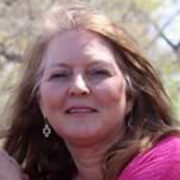Presentations

Every drop!, our 27th online breastfeeding conference in English covers a wide range of topics to inform and guide your clinical practice and to inspire and challenge your thinking about breastfeeding, nutrition and human lactation.
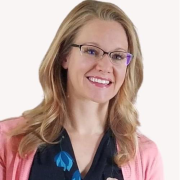
Sizing up the evidence: bridging research, practice, and practical skills in pumping and flange fitting
Lisa Anders, PhD, RN, IBCLC - Read moreSizing up the evidence: bridging research, practice, and practical skills in pumping and flange fitting
Lisa Anders, PhD, RN, IBCLC
Dr Lisa Anders is an Assistant Professor at the University of North Carolina at Greensboro School of Nursing. She received her nursing degree from the University of Wisconsin-Madison in 2009 and her PhD from Marquette University in Milwaukee, Wisconsin in 2021. She has practiced as a nurse in Labor & Delivery, Postpartum Care, and the Operating Room. She became an IBCLC in 2018. Her program of research focuses on improving lactation support for pump-dependent parents. She has conducted both qualitative and quantitative studies on the experiences of exclusive pumpers, the knowledge and practices of lactation care providers related to breast pump use, and the impact of flange sizing on comfort and milk expression outcomes. Dr. Anders is also the Project Director for the Leadership, Education, and Diversity in Maternal and Child Health (LEAD in MCH) undergraduate traineeship program. She is passionate about bridging the gap between research and clinical practice in lactation and supporting the development of the next generation of maternal-child health nurses.
Sizing up the evidence: bridging research, practice, and practical skills in pumping and flange fitting
This presentation will explore the principles of evidence-based practice as a foundation for lactation care, using flange sizing and pumping support as a case example. Participants will examine gaps between research and current clinical practices, particularly in the guidance provided to pump-dependent parents. The session will conclude with practical tools for conducting flange fittings, recognizing signs of poor fit, and supporting effective and comfortable milk expression.
0.75 L (VI, VII) CERP
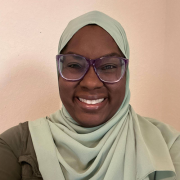
AI in lactation: innovations in breastfeeding support and research
Latonia Anthony, RN, IBCLC - Read moreAI in lactation: innovations in breastfeeding support and research
Latonia Anthony, RN, IBCLC
Latonia Anthony is a nurse and International Board Certified Lactation Consultant (IBCLC) from Houston, Texas, with over 11 years of experience in both hospital and virtual lactation support. A mother of six, Latonia is passionate about promoting diversity in lactation care, holistic support for families, preparing parents for the return to work, and advocating for NICU families. She previously presented on Breastfeeding in Islam at iLactation in 2020 and is honored to return as a speaker.
AI in lactation: innovations in breastfeeding support and research
This presentation explores how artificial intelligence is transforming breastfeeding support and research. It highlights innovative AI applications such as smart lactation tracking, personalized breastfeeding advice, early detection of lactation issues, and data-driven maternal-infant health insights. By integrating AI into clinical and home settings, the field is advancing toward more accessible, efficient, and personalized breastfeeding care.
1.00 L (VII) CERP
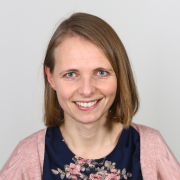
Acceptance of the bottle by breastfed babies
Maaske Treurniet, MA - Read moreAcceptance of the bottle by breastfed babies
Maaske Treurniet, MA
Maaske Treurniet is speech language therapist, feeding therapist and lactation consultant. She runs a practice called Volmondig Logopedie in The Netherlands and specialized in bottle refusal in breastfed babies. Her approach has been proven succesful in re-introducing the bottle. She teaches feeding therapists and lactation consultants about this approach in the ‘Masterclass Bottle refusal’.
Acceptance of the bottle by breastfed babies
In this presentation the principles of learning sucking skills will be explained related to bottle refusal as a consequence of normal development. Introducing a bottle with respect to succesful continuation of the breastfeeding will receive attention as well as evidence-based interventions and advice to be given in case of bottle refusal.
1.00 L (VI, VII) CERP
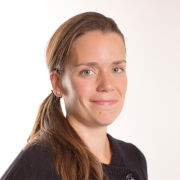
Living in existential exile: women’s lived experience of intimate partner violence during the breastfeeding period
Ida Gustafsson, RN, RM, PhD student - Read moreLiving in existential exile: women’s lived experience of intimate partner violence during the breastfeeding period
Ida Gustafsson, RN, RM, PhD student
Ida Gustafsson is a registered nurse and midwife, currently pursuing a doctoral degree in Caring Science at the University of Borås, Sweden.
Her doctoral research explores existential perspectives on intimate partner violence during the breastfeeding period, building upon her and her colleagues’ previous work on the existential dimensions of breastfeeding and breastfeeding care. In addition to her research, she teaches nursing and midwifery students at the University.
Living in existential exile: women’s lived experience of intimate partner violence during the breastfeeding period
This presentation will draw upon my PhD project, which examines existential aspects of intimate partner violence during the breastfeeding period. Particular emphasis will be placed on women’s lived experience of being subjected to violence during breastfeeding, and the various ways in which this violence is manifested.
0.75 L (V, VII) CERP
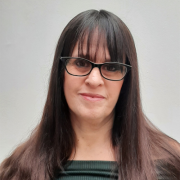
Physiology of contact: when the experience of intimate and prolonged skin-to-skin contact facilitates the breastfeeding process
Carina Krasnoff, MD IBCLC - Read morePhysiology of contact: when the experience of intimate and prolonged skin-to-skin contact facilitates the breastfeeding process
Carina Krasnoff, MD IBCLC
Dr Carina Krasnoff is a pediatrician specialized in Breastfeeding Medicine and a Public Health specialist from the University of Buenos Aires, Argentina. She is also a breastfeeding educator and an International Certified Lactation Consultant (IBCLC).She also holds a Diploma in Childcare and Breastfeeding from the University of Aconcagua, Argentina and is an Instructor in Infant Massage (International Association of Infant Massage).
She specialises on topics related to Human Breastfeeding, Childcare and Nurturing Touch Care.
Dr Krasnoff is also a member of the National Breastfeeding Committee of the Argentine Society of Pediatrics and Reviewer of scientific articles related to breastfeeding in the Scientific Journal of the Argentine Society of Pediatrics, Archivos Argentinos de Pediatría.
Dr Krasnoff is the Director of the ‘Infant Massage Course for Professionals in the Perinatal and Pediatric Area’ at Criar Salud, an educational-assistance space for families and professionals.
Her assistance work is based on offering families comprehensive, holistic and respectful care in their breastfeeding and parenting processes.
And Dr Krasnoff’s mission from is to raise awareness among health agents who assist the perinatal and pediatric population about the fundamental nature of contact in primary processes, promoting breastfeeding education from a health prevention perspective.
Physiology of contact: when the experience of intimate and prolonged skin-to-skin contact facilitates the breastfeeding process
We sense the world as threatening or pleasant through our skin. Sensations such as warmth, heat, cold, intense or dim light, gentle or aggressive touch can both stimulate and inhibit our autonomic nervous system and oxytocinergic system. When the baby is in skin-to-skin contact with his mother, he moves his little hands to “massage” his mother’s chest, thus generating oxytocin pulses. The moderate pressure contact exerted by the baby’s body on the mother’s body generates a tactile stimulus that triggers a strong associated vagal response of calm and wellness. More and more research is being added in relation to the power of touch in the release of oxytocin and the stimulation of the vagal system. This presentation will look at how touch, the mother of senses, provides mother and baby the input to the oxytocinergic system playing an integral role in the biological-behavioral regulation of lactation. As care providers, learning how to nurture these encounters between parent and baby and teach about why it is so important will help to improve breastfeeding duration and create families attentive to the needs of their children.
1.00 L (I, V, VI, VII) CERP

When our clients are stuck: tools to create achievable care plans and improve client success
Johanna Sargeant, BA, BEd, IBCLC - Read moreWhen our clients are stuck: tools to create achievable care plans and improve client success
Johanna Sargeant, BA, BEd, IBCLC
Johanna Sargeant is an Australian IBCLC, writer and teacher based in Zurich, Switzerland. With extensive training in occupational therapy, education, biomedical science, and psychology, she empowers parents with empathetic support and accurate, personalised care through her private practice, Milk and Motherhood. In addition to working privately with clients, she recently co-created the new breastfeeding education modules for the European School of Neonatology, and travelled to Vienna to teach at the 10th Annual Congress of the European Academy of Paediatric Societies. She has taught at the University of Zurich, has spoken as a panellist for the WHO’s Baby Friendly Hospital Initiative congress, has been an expert speaker and facilitator for Google, and has presented at a wide variety of international conferences. Additionally, Johanna has gained her Perinatal Mental Health Certification (PMH-C) and is a Certified Trauma Support Specialist. Her complex personal and professional experiences fuel her passion for providing knowledgeable, guilt-free infant feeding support globally.
When our clients are stuck: tools to create achievable care plans and improve client success
Our work with clients involves so much more than simply an in-depth knowledge of lactation. Higher level counselling skills are imperative in allowing our clients to move forward with confidence. We may know exactly what is needed in order for them to achieve ‘lactation success’, but they don’t follow through in the way they had originally committed. Discover how the strong desire to inform, advise and fix client problems can significantly reduce positive outcomes, and how very specific tools can actively mobilize them towards their goal. Learn strategies you can immediately apply in consultations so parents feel deeply supported and motivated, feel ownership of their plan, and ultimately increase their likelihood of success.
1.00 L (V, VII) CERP
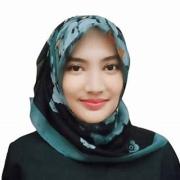
SEKOCI (Complementary School of Mother’s Love): a culturally-rooted innovation for breastfeeding support in Indonesia
Dr Rizka Ayu Setyani, SST, MPH - Read moreSEKOCI (Complementary School of Mother’s Love): a culturally-rooted innovation for breastfeeding support in Indonesia
Dr Rizka Ayu Setyani, SST, MPH
Dr Rizka Ayu Setyani is a midwife, public health practitioner, and founder of SEKOCI (Sekolah Komplementer Cinta Ibu). She is also the owner of Ayusofia Mother and Child Care, a center dedicated to supporting mothers and families. She is actively involved in global health, with expertise in women’s health and HIV/AIDS as a member of the International AIDS Society (IAS). She was selected as an Emerging Voice for Global Health in 2022 and currently serves as a 2024 Correspondent for International Health Policies (IHP). Her work includes research and advocacy in health systems, maternal and child health, and sexual and reproductive health. She also leads youth empowerment programs focused on HIV/AIDS prevention through online peer education.
SEKOCI (Complementary School of Mother’s Love): a culturally-rooted innovation for breastfeeding support in Indonesia
This presentation explores SEKOCI, a community-based program developed to support breastfeeding through culturally sensitive, grassroots approaches in Indonesia. The challenges faced by breastfeeding mothers, the conceptual framework of SEKOCI, and its integration of local values and traditional practices. The presentation highlights key components such as home visits, peer mentoring, and community cadres, along with measurable outcomes and strategies for adaptation in other contexts will be presented. Participants will gain insights into how culturally rooted models can enhance breastfeeding support and maternal empowerment.
1.00 L (V, VII) CERP
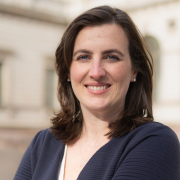
Breastfeeding for prevention of respiratory syncytial virus disease (RSV)
Melissa Theurich, PhD, MPH, IBCLC - Read moreBreastfeeding for prevention of respiratory syncytial virus disease (RSV)
Melissa Theurich, PhD, MPH, IBCLC
Dr Melissa Theurich a Maternal and Child Health and Nutrition Researcher with a background in Nutrition Science, Public Health, Human Biology and International Development. The focus of my scientific work is on infant and young child nutrition for the prevention of nutritional deficiencies and non-communicable diseases,
including women’s reproductive health with an emphasis on breastfeeding. She has worked as an author and scientific editor of WHO/UNICEF global guidelines in the area of infant and young child feeding and has clinical experience as an International Board Certified Lactation Consultant (IBCLC). She is passionate
about working at the intersection of science, practice, and policy, conducting relevant research that improves the lives of vulnerable populations. She strives to provide excellent teaching to improve the focus and depth of knowledge in the next generations of public health, nutrition and medical professionals. Dr Theurich is
an Associate Editor at the Journal of Human Lactation.
Breastfeeding for prevention of respiratory syncytial virus disease (RSV)
Infection with respiratory syncytial virus (RSV) during infancy and early childhood is very common, with almost all infants and children having been infected by the age of two years. RSV is a leading cause of hospitalization and responsible for 3.6 million hospital admissions every year, many occurring in infants aged 0–6 months. Premature and low-birth-weight infants are especially vulnerable to RSV. The burden of RSV is particularly high in infants aged one to six months of age, accounting for an estimated one in every 28 deaths. Most infant deaths from RSV-related disease occur in low- and middle-income countries. Up until 2024, there were no available vaccines for RSV prevention. Breastfeeding has been shown to reduce the severity of RSV bronchiolitis, length of hospital stays, need for supplemental oxygen, severity of pneumonia, and death. Positive effects of breastfeeding on the severity of RSV disease have also been demonstrated in high income countries reducing the odds of hospitalization and ICU admission. Therefore, public health messaging should emphasize breastfeeding as a synergistic approach to vaccines for RSV-related disease, in all countries but especially in areas of the world where the new RSV vaccines are unavailable or unaffordable.
0.75 L (III, VII) CERP
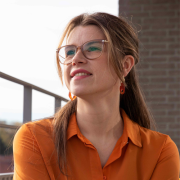
The use of galactagogues and health products during lactation
Eline Tommelein, PharmD, PhD, LC - Read moreThe use of galactagogues and health products during lactation
Eline Tommelein, PharmD, PhD, LC
Prof Eline Tommelein obtained her master’s degree in Drug Development in 2011. She subsquently started her PhD research at the Pharmaceutical Care Unit (UGent), focusing on the one hand on continued pharmaceutical care for patients with COPD and on the other hand on older patients with polypharmacy. She obtained her PhD in September 2016. In 2019, after an academic break of 3 years, during which she started her own continuous education company ‘Medicourse’ she returned to academia, taking up a professorship at the ‘Vrije Universiteit Brussel’. She oversees the courses ‘Line project III: introduction to the pharmaceutical practice’, ‘Integrated pharmacology and pharmacotherapy I and II’ and ‘Internship in the community pharmacy and serious gaming’. She also teaches the elective course ‘Nutrition in the first two years of life’ and provides several guest classes considering food supplements.
In the meantime, she followed additional training in clinical chemistry in Utrecht (The Netherlands) in 2012 and obtained certification of medication reviewer (PIAF pharmacist) in November 2015. In 2018 she graduated as a smoking cessation specialist. In 2020 she completed the postgraduate as a lactation consultant.
Prof Tommelein is the author of multiple handbooks including Bottle feeding: breast milk or formula via the bottle; Breastfeeding: a practical guide for healthcare professionals and Transitioning from milk to solids: a practical guide, all of which appeared in 2019 and 2020. In 2022, she published a book for the public, titled Eat like an expert, mini with co-author Dr Rolinde Demeyer.
Since obtaining her pharmacy degree in 2011, Prof Tommelein continuously worked in various public pharmacies in Belgium. This way, her work remains related to practice, and she can respond well to the needs and questions of the healthcare landscape. She carries out teaching assignments for professional organisations and continuous education organisations. She currently teaches pharmacology in the midwifery schools of VIVES (Kortrijk, Belgium), Karel de Grote College, Antwerp, Belgium, Artevelde University college, Ghent, Belgium and Erasmus Hogeschool ,Brussels, Belgium. In addition, she provides classes regarding clinical chemistry in the Master of Pharmaceutical Care program at Ghent University and is a guest teacher at the University of the Western Cape in South Africa.
The use of galactagogues and health products during lactation
This presentation explores the use of health products by breastfeeding women, offering healthcare providers a structured overview and practical strategies to support safe and informed use. In the first part, we will discuss common patterns in health product use during lactation—including prescribed medications, over-the-
counter products, supplements, and herbal remedies—and share tips and tricks to help professionals accurately assess what lactating women are using, including products they may not spontaneously mention. The second part of the session will focus on galactagogues, both pharmacological and herbal, with a critical look at their evidence base, safety profiles, and common usage in practice.
1.25 L (I, VI, V, VII) CERP
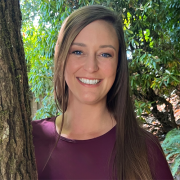
Paving the way to improve access to lactation care
Holly Johnson, IBCLC - Read morePaving the way to improve access to lactation care
Holly Johnson, IBCLC
Holly Johnson is a private practice IBCLC with a BS in Maternal Child Health and Human Lactation. In December 2025, she will graduate with a Masters in Public Health focusing on Maternal Child Health. She has a passion for improving access to lactation care in rural and military communities. She is a military spouse and mother for 4 children she home-schools on their small family farm.
Paving the way to improve access to lactation care
Access to quality lactation care is one of the biggest hurdles facing new parents. Geographic isolation compounds the issue further. This presentation explores the unique approach to delivering lactation care with a mobile lactation clinics.
0.75 L (VII) CERP
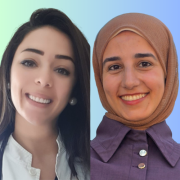
Supporting, protecting and sustaining breastfeeding in emergencies
Yafa Ajweh, IBCLC, Mental health nurse, PhD student and Amira Qudieh, MD - Read moreSupporting, protecting and sustaining breastfeeding in emergencies
Yafa Ajweh, IBCLC, Mental health nurse, PhD student
Yafa Ajweh is a maternal health advocate, International Board Certified Lactation Consultant, and full-time postgraduate researcher dedicated to improving maternal mental health and breastfeeding support for displaced populations. With a strong foundation in public health and humanitarian response, her work focuses on creating sustainable, community-based models of care that center the needs of mothers affected by crisis.
Yafa is one of the founding core team members of the Gaza Infant Nutrition Alliance (GINA), where she leads training and program development for healthcare providers supporting infant feeding in emergencies. Through GINA, she has helped shape virtual systems of support for displaced mothers in conflict zones, combining evidence-based lactation care with mental health strategies in settings where traditional healthcare access is disrupted.
Her professional journey spans hospitals and private clinics in stable countries as well as refugee camps and besieged areas, where she has worked directly with displaced mothers navigating the challenges of breastfeeding, relactation, and trauma recovery. She is also the founder of The Lactivist, a digital platform that provides accessible, culturally competent lactation support to mothers around the world.
Currently pursuing her PhD, Yafa’s research investigates how telehealth can strengthen maternal mental health and infant feeding practices in humanitarian contexts, bridging academic insight with frontline action. At the core of her work is a commitment to equity, education, and ensuring every mother has the support she needs to nourish her baby, even in the hardest of times.
Amira Qudieh, MD
Dr Amira Qudieh is a general practitioner based in Gaza and the team leader of the Gaza Infant Nutrition Alliance (GINA). Through her role at Nasser Medical Complex, she has been actively supporting breastfeeding mothers with the GINA team in the BFR, NICU, Maternity, and Pediatric Departments. Together with GINA, they established the first breastfeeding clinic in the Gaza Strip, where she works directly with mothers, offering one-on-one consultation and guidance on breastfeeding and infant nutrition. In addition to her clinical experience, she has volunteered extensively in the Emergency Department at Nasser.
Supporting, protecting and sustaining breastfeeding in emergencies
This presentation explores practical, community-based strategies to support breastfeeding in humanitarian settings. Drawing on experiences from the Gaza Infant Nutrition Alliance (GINA), it will examine how virtual support, culturally sensitive training, and collaborative care models can protect and sustain breastfeeding during conflict, displacement, and system collapse. It highlights lessons learned from hospitals, refugee camps, and besieged areas, and discusses the role of telehealth in strengthening maternal mental health and infant feeding practices in emergencies.
1.00 L (I, VI, VII) CERP
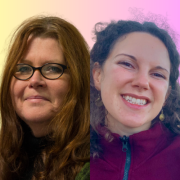
The Imagine-HMB project
Tanya Cassidy, PhD, MA, AM, BA and Serena Gandino, MD - Read moreThe Imagine-HMB project
Tanya Cassidy, PhD, MA, AM, BA
Dr Tanya Cassidy has over three decades of experience working as an interdisciplinary social scientist who was original trained both at the University of Chicago, USA and at the University of Windsor, Canada. Her work has always looked to build bridges between disciplines, including both theories and methods, a topic which she carries to her work on maternal and reproductive health issues.
Dr Cassidy moved to Ireland, just outside of Dublin, shortly after finishing her PhD, and has lived there now for most of her career. She has received a number of prestigious awards and fellowships including the Dublin City University (DCU) President’s award for Research Impact, a Fulbright-HRB (Irish Health Research
Board) Health Impact Scholar award, an EU Horizon 2020 Marie Skłodowska Curie Award (MSCA) fellowship, and a senior HRB Cochrane fellowship. She has published many articles and is the lead author of the book Banking on Milk: An ethnography of donor human milk relations (published with Routledge, June 2019), which thanks to a grant from the DCU School of Nursing, Psychotherapy and Community Health (where she lectured until 2022) is now available by open access (see
www.taylorfrancis.com/books/oa-mono/10.4324/9780203713051/banking-milk-tanya-cassidyfiona-dykes-bernard-mahon). Recently she was part of an interdisciplinary international team that conducted two important systematic reviews for the World Health Organisation (WHO). And she is currently the Irish lead for an EU4Health project IMAGINE HMB project, linked to establishing European donor human milk guidelines.
Serena Gandino, MD
Dr Serena Gandino is a neonatologist and consultant for the EU-funded Imagine-HMB project, where she focuses on the dissemination and stakeholder engagement aspects in collaboration with the Irish Neonatal Health Alliance (INHA). She currently works as a Neonatal Registrar at Oxford University Hospital and serves as the
Secretary of the European Milk Bank Association (EMBA). She is enthusiastically committed to neonatal health, human milk banking, and global health research.
The Imagine-HMB project
This presentation will provide an overview of the new 2024 EU legislation on Substances of Human Origin (SoHO), with a specific focus on its implications for human milk. It will introduce the Imagine-HMB project —its objectives, structure, and timeline—while summarizing key progress made during the first nine months and outlining the upcoming steps and anticipated challenges in the next project phase.
1.00 L (I, VII) CERP
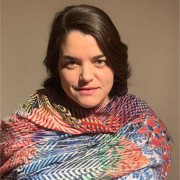
Breastfeeding babies with sensory processing differences
Mariana Colmenares, MD, IBCLC - Read moreBreastfeeding babies with sensory processing differences
Mariana Colmenares, MD, IBCLC
Dr Mariana Colmenares was born in Mexico City, and from an early age was fascinated by animals and nature. She studied medicine at the National University of Mexico (UNAM), and found her passion as a pediatrician doing her residency at the National Pediatric Institute. She migrated with my family to the UK in 2022, where she was working in Neurodevelopmental Paediatrics and does breastfeeding medicine and is a tongue tie practitioner. When her first child was born she witnessed the lack of knowledge and commitments with breastfeeding within the medical profession so she decided to specialize in breastfeeding medicine. Certified as a Lactation Consultant (IBCLC) in 2011. She is member of the International Lactation Consultant Association, the Academy of Breastfeeding Medicine and a proud founding member of the National Lactation Consultant Association of Mexico (ACCLAM), where she served on the Board of Directors as Education Coordinator (2014-2019). She was part of the board directors for the Academy of Breastfeeding Medicine for 3 year period (2019-2022) and actual secretary for the ABM (2022-2028).
She has been part of experts committees for the World Health Organization, and consultant for the National Health Institute in Mexico and has collaborated with UNICEF in breastfeeding projects. She has spoken at national and international conferences, co-published numerous articles and co-authored a chapter for the National Academy of Medicine. Her commitment is to contribute to a medical profession that is better prepared to support breastfeeding and support students to become IBCLC.
Breastfeeding babies with sensory processing differences
Sensory information is received from our senses, which include our vision, olfact, hearing, touch, taste, proprioception, interception, and vestibular sense. All of them together enables us to interact with the world that surrounds us and with our inner self. The terms “sensory integration” and “sensory processing” both refer to the processes in the brain that allow us to take the signals from our senses, make sense of those signals and respond appropriately.
Early in life some babies may have differences in the way they interact with their environment. These babies may present with different behaviors, such as irritability, fussiness, hipertonia, sleeping difficulties or feeding difficulties, all of which may negatively impact parenting experiences and affect feeding, with early and undesired weaning. Few health-related behaviors have as much impact as breastfeeding in improving quality of life, increasing health, and decreasing mortality. Breastfeeding can impact during this vulnerable time window for the wiring of individual connectome.
1.00 L (I, III, VII) CERP
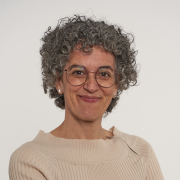
Management of the nursing infant with faltering weight
Carmela Baeza, MD, IBCLC - Read moreManagement of the nursing infant with faltering weight
Carmela Baeza, MD, IBCLC
Dr Carmela Baeza is a medical doctor and family physician. After the very unsuccessful breastfeeding experience with her first child, who had a congenital heart defect, she realized that her medical training had been completely lacking in the field of lactation. In 2003 she decided to become an IBCLC and specialize in
breastfeeding medicine. Since then she works in a Family Wellness Clinic in Madrid (Spain), in charge of the Breastfeeding Department, offering consultations to nursing families. In 2018 she began to collaborate with the European Institute of Perinatal Mental Health, coordinating and teaching in the Breastfeeding and
Mental Health training programs for healthcare professionals.
Management of the nursing infant with faltering weight
In this Presentation we will learn what tools are efficient to assess infant growth in the first days and months of life. This will help us determine when it is necessary to supplement an infant. We will review the “when, how and how much” of supplementing a breastfed infant, and how to give families ecosystemic, holistic support.
1.00 L (I, II, VII) CERP

Feeding the allergy babyandThe portrayal of breastfeeding in literature
BJ Woodstein, PhD, IBCLC - Read moreFeeding the allergy babyandThe portrayal of breastfeeding in literature
BJ Woodstein, PhD, IBCLC
Dr BJ Woodstein is a translator, writer, doula, lactation consultant, consultant in EDI and education, and honorary professor of literature and translation. Her most recent books include Feeding Your Allergy Baby, The Road to IBCLC, Translation Theory for Literary Translators, and We’re Here! A Practical Guide to Becoming an LGBTQ+ Parent. She lives in Norwich, England, with her wife and their children.
Feeding the allergy baby
This presentation will explore what allergies are and the impact they have on individuals and families. It will then discuss how allergies affect breastfeeding/chest-feeding, combi-feeding, and formula-feeding. It will also include tips for IBCLCs so they can best support allergy families.
1.25 L (III, V, VII) CERP
The portrayal of breastfeeding in literature
This presentation will discuss how breastfeeding is depicted in literature for both adults and children. It will compare portrayals of breastfeeding across languages/cultures and suggest what these differences might tell us about how breastfeeding is understood in various societies. The presentation will close by
explaining why the portrayal of breastfeeding in literature matters and what we can do to impact this in the future.
1.50 L (V, VII) CERP
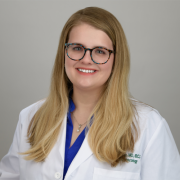
Contraception and lactation
Cheryl Godcharles, MD, NABBLM-C, IBCLC - Read moreContraception and lactation
Cheryl Godcharles, MD, NABBLM-C, IBCLC
Dr Cheryl Godcharles is an Assistant Professor of Obstetrics and Gynecology at the University of South Florida Morsani College of Medicine. She is board certified in Obstetrics and Gynecology, Complex Family Planning, and Breastfeeding and Lactation Medicine. She directs postpartum education for both residents and medical students at USF and is actively engaged in clinical research and quality improvement initiatives focused on improving postpartum care and breastfeeding outcomes. Her work centers on health equity, education, and expanding access to evidence-based lactation support.
Contraception and lactation
This presentation will explore the intersection of lactation and contraception, with a focus on evidence-based guidance for supporting breastfeeding while meeting patients’ contraceptive needs. Topics will include hormonal and non-hormonal options, timing of initiation, and strategies for shared decision-making in diverse clinical settings. Attendees will leave with practical tools to optimize postpartum care and minimize disruption to lactation.
0.75 L (II, IV, VII) CERP

Protecting infant feeding through Code monitoring and enforcement using digital platforms and innovative technology (AI)
Constance Ching, MSW - Read moreProtecting infant feeding through Code monitoring and enforcement using digital platforms and innovative technology (AI)
Constance Ching, MSW
Constance Ching provides technical support in advocacy, implementation/monitoring, evidence generation, and research in relation to the International Code of Marketing of Breast-milk Substitutes and infant and young child feeding protection across regions for Alive & Thrive, as well as technical leadership in projects that employ innovative digital technologies to monitor Code violations and harmful food and beverage marketing. Prior to that, Constance worked for the International Code Documentation Centre (part of IBFAN) where she supported capacity building for governments, UN agencies, and NGOs on Code implementation and monitoring. She also participated in the World Health Assembly and other global forums to advocate for stronger Code-related measures. A social worker by profession, Constance has two decades of experience in non-governmental organizations and academic institutions, including supervising a university-wide service-learning program in Hong Kong, and managing community-based programs for homeless people living with HIV/AIDS and mental illness in New York City. She is currently
based in Penang, Malaysia.
Protecting infant feeding through Code monitoring and enforcement using digital platforms and innovative technology (AI)
This presentation covers key concepts in Code monitoring and enforcement, features of existing Code monitoring digital platforms (how innovative technology like AI is integrated), implementation framework and process and highlights in countries, and how evidence and knowledge are managed and disseminated for advocacy, research, and enforcement action.
1.00 E (VII) CERP
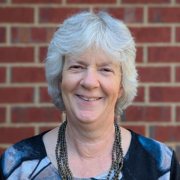
Breastfeeding and infant caries: what the evidence really says
Alison Walsh, MBBS, FRACGP, DipRANZCOG, IBCLC, Grad Cert PC - Read moreBreastfeeding and infant caries: what the evidence really says
Alison Walsh, MBBS, FRACGP, DipRANZCOG, IBCLC, Grad Cert PC
Dr Alison Walsh is an Australian rural GP (Family Physician) and Lactation Consultant with a special interest in the intersection between breastfeeding and early childhood caries (ECC). Also a volunteer ABA Breastfeeding Counsellor and mother of 3 adult children. Dr Walsh is passionate about translating evidence into practical, family-centred care.
Breastfeeding and infant caries: what the evidence really says
This presentation aims to separate commonly held myths from clinically relevant facts through a critical examination of current literature and the paradigms that shape it. It systematically explores the complex interplay of factors influencing caries risk in infants, providing a clear framework for understanding the evidence.. Participants will gain practical, evidence-based insights to support families in minimising caries risk.
2.00 L (III, VII) CERP

